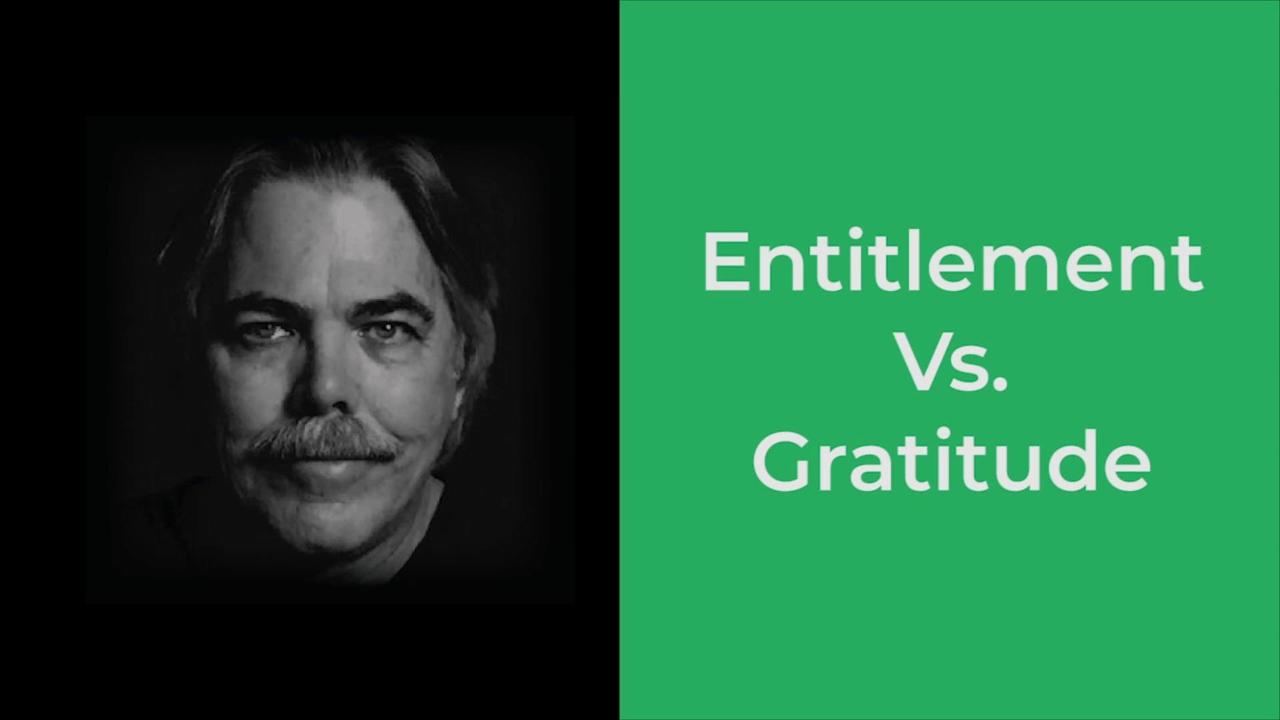In the exploration of human character and morality, the concepts of entitlement and gratitude emerge as pivotal dichotomies in the generative discourse of the Bahá’í Faith. These two dispositions significantly influence not only personal development but also the broader dynamics of social interaction. At a surface level, entitlement exhibits a proclivity towards self-absorption and dissatisfaction, while gratitude embodies an elevation of consciousness that cultivates relational harmony and personal fulfillment. To elucidate the gravity of this distinction, it is imperative to delve deeper into the philosophical underpinnings, psychological ramifications, and spiritual implications of these two contrasting paths.
To commence, the notion of entitlement can be likened to a parasitic relationship with one’s environment. Individuals characterized by this mindset often perceive themselves as justified in their demands for recognition, resources, and rights—irrespective of their contributions or the needs of others. This mindset nurtures a pervasive sense of dissatisfaction. It engenders a heightened expectation that the world ought to cater to personal whims and preferences. This expectation, often unfounded, can lead to chronic discontent and estrangement from others, fostering an insatiable thirst for more.
Conversely, gratitude acts as a liberating force, severing the chains of disillusionment wrought by entitlement. The practice of actively acknowledging and appreciating the abundance in one’s life, irrespective of its material dimension, engenders a profound sense of peace and connection. Gratitude transforms the lens through which we view our existence, inviting a recognition that life is replete with gifts, both big and small. By nurturing an attitude of gratitude, individuals often report an enhanced quality of life, demonstrating improved emotional resilience and a greater capacity for empathy.
From a Bahá’í perspective, the exploration of these two dispositions leads to the understanding that life’s true abundance can only be realized through acts of service and giving. The teachings of Bahá’u’lláh centralize the concept that generous and selfless acts not only contribute to social cohesion but also serve as a catalyst for personal growth. By embracing gratitude, individuals position themselves on a trajectory toward spiritual enlightenment and societal contribution, allowing them to transcend the limitations imposed by entitlement.
Furthermore, the juxtaposition of entitlement and gratitude speaks to the fundamental human need for connection and community. An entitlement mentality often erects boundaries between individuals, inhibiting authentic relationships by fostering a sense of competition and individualism. Relationships become transactional rather than transformational, limiting the depth of human experience. In contrast, gratitude fosters interconnectedness. It encourages individuals to recognize the myriad ways in which their lives intersect with others. Through acts of appreciation—both expressed and internalized—individuals can forge bonds that transcend superficial interactions, aligning with the Bahá’í principle that human beings are inherently social beings and flourish within the context of community.
Moreover, the psychological implications of these two attitudes bear significant weight. Research in the realm of positive psychology substantiates the assertion that grateful individuals often experience heightened levels of well-being, lower levels of depression, and an improved capacity to cope with adversity. Gratitude catalyzes a shift in cognitive focus from what is lacking to what is plentiful, promoting a narrative of sufficiency rather than scarcity. In stark contrast, those ensnared by entitlement frequently find themselves ensconced in a cycle of dissatisfaction, perpetually gripped by the notion that happiness lies just out of reach.
Additionally, the roots of entitlement can often be traced to broader societal constructs, such as consumerism and materialism, which perpetuate a relentless chase for more—more possessions, more achievements, more recognition. The Bahá’í teachings urge individuals to reflect upon this pervasive ethos critically, challenging the values that foster entitlements and opting instead for a mindset grounded in simplicity and appreciation for life’s inherent gifts. This critical self-reflection can serve to dismantle deeply ingrained belief systems that uphold entitlement, replacing them with a consciousness steeped in humility and gratitude.
Ultimately, the journey between entitlement and gratitude is not merely a personal endeavor but a communal one—ripe with implications for social justice and global harmony. By cultivating gratitude at both the individual and collective levels, Bahá’ís believe that societies can emerge that prioritize the well-being of all members, recognizing our shared responsibility to lift one another through mutual support. In this regard, gratitude functions as not just an attitude but a powerful practice that can yield tangible transformations in social structures, fostering inclusivity and understanding.
In conclusion, the contrasting paths of entitlement and gratitude encapsulate essential teachings within the Bahá’í Faith that urge individuals toward a deeper understanding of their purpose and place within the world. Embracing gratitude facilitates a robust connection to oneself and to others, underpinning a vitality that propels personal and societal progress. The choice between these two roads may very well define the quality and essence of one’s life journey, steering the soul toward either the shadows of discontent or the illuminating light of appreciation. In the grand tapestry of existence, it is gratitude—a consciously chosen attitude—that weaves threads of joy, connection, and significance through the fabric of our lives.
